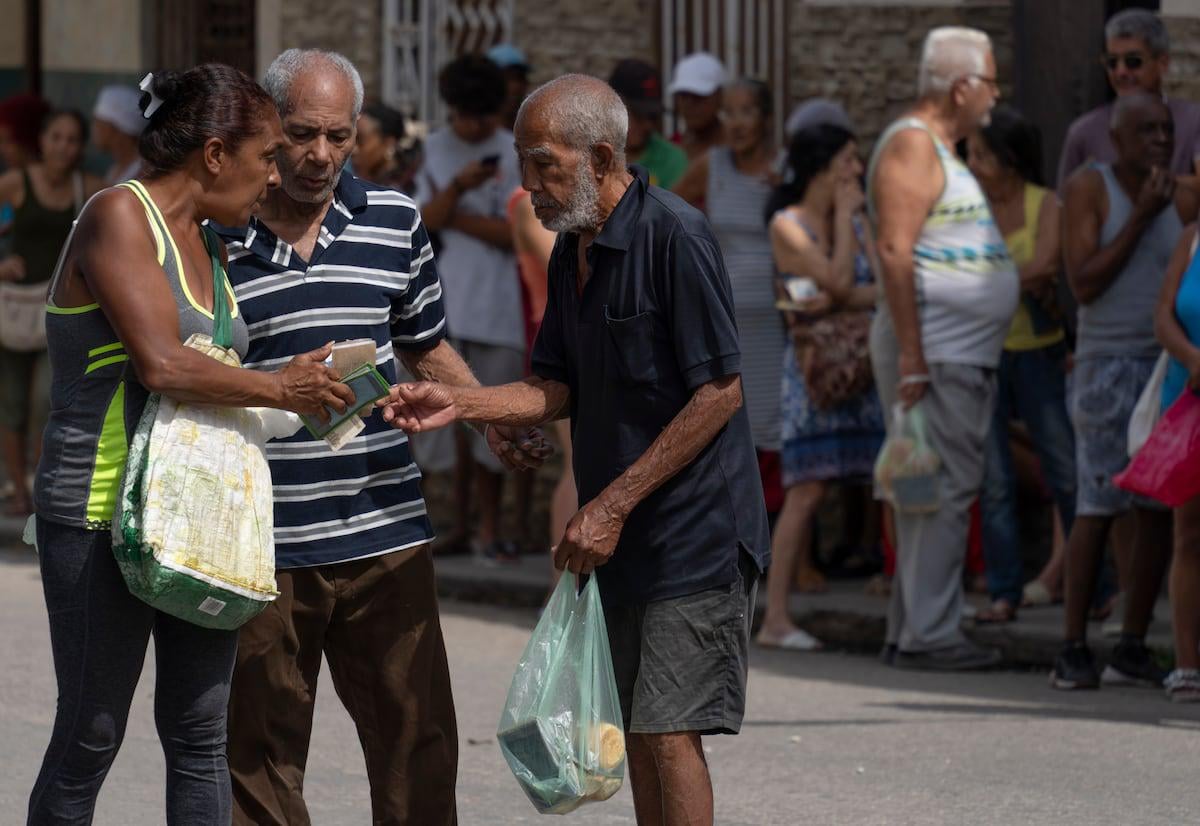
For at least three years, Guillermo Rodríguez, a 34-year-old journalist from Ciego de Ávila has been raising money from Cubans on and off the island to buy houses for the homeless. The country currently has a deficit of 862,000 properties, according to data from the National Statistics Office (ONEI). However, unofficial figures suggest that there are some 1.2 million homeless Cubans, while thousands more reside in overcrowded or almost-marginal conditions.
Rodríguez asked Sosa, his right-hand man in Santiago de Cuba, to locate Vicente, who someone saw crawling through a local park. After finding him, he turned to his Facebook followers and told them who Vicente was: a disabled, unmarried man with no children, who had been in a wheelchair for more than 10 years. Vicente’s parents — his only support system — died a long time ago. He lives on a monthly pension of 1,500 Cuban pesos (a little over $5) from the state, enough to eat just once every two days.
It took three days to raise 210,000 Cuban pesos ($583). Rodríguez subsequently allocated 180,000 pesos ($500) to purchase the house. With the rest of the funds, he’ll furnish it with appliances that Vicente has never had. Rodríguez did the same thing over a month ago for Benito, a single father living in the center of the island, in a house made of planks with a dirt floor, and his 10-month-old baby. With 1.6 million pesos (more than $4,400), the volunteers acquired a two-story home and everything the father needed to start over.
It’s a silent solidarity movement. “A chain of favors,” Rodríguez notes. “Yesterday, two people went to pick up donated nebulizers for their children with asthma: they arrived with medicines to give to someone else, in case they needed them. The number of vulnerable, abandoned people is numerous. In Cuba, a network of support and empathy has been created […] in a country so devastated, people cling to that. In Cuba, only neighbors can help each other out.”
For several years now, Cubans haven’t waited around for their government. Those who receive remittances from abroad are freed from depending on the increasingly scarce rationed food that the government barely guarantees. Those who manage to get into business are navigating shortages of all kinds, in a country with a collapsed, dependent economy that ended 2024 with an inflation rate of 24.88%. Today, in Cuba, according to studies, around 89% of families live in extreme poverty. Some Cubans attest that this is the greatest crisis of all time, even worse than the so-called Special Period (1991-2000), which began following the collapse of the Soviet Union. There is an emigration of almost two million Cubans in about three years; people dying without medical care; retirees whose pensions are insufficient; or people seen sleeping on the streets, something they say was unheard of in the 1990s.
In many cases, activists or civil society organizations fill the gaps in the ever-increasing space left by the government. And, after stepping in, almost all of them end up targeted by the political police, or are forced to abandon their work.
Art historian and activist Yamilka Lafita — who has helped launch some of the most visible campaigns in recent years — asserts that, without knowing how or since when, it’s Cuban civil society that has united to survive. “Some people tell me: ‘You’re putting Band-Aids on the dictatorship.’ But I’m not putting Band-Aids on it, because my help denounces the system. Every contribution you make — whether it’s getting a humanitarian visa, or donating two syringes — helps a Cuban survive in poverty.”
https://english.elpais.com/international/2025-04-20/the-chain-of-favors-that-keeps-cubans-afloat-in-the-face-of-state-abandonment.html
Posted by Naurgul
1 comment
I think any article covering the economic struggles in Cuba, and not mentioning, even once, the US sanctions against it, which have been continuously ruled illegal by the UN GA year after year, is engaged in US propaganda.
Comments are closed.